Peak season brings both opportunity and pressure. As patients are preparing for the holidays, your schedule fills quickly and revenue potential soars. However, this surge also tests your team’s ability to recommend treatments authentically without crossing ethical boundaries.
In the aesthetic space, successful upselling requires a foundation of trust and genuine patient care. When your team understands how treatments complement each other and why certain combinations deliver superior results, they can make recommendations that truly benefit patients while naturally increasing ticket values.
Is Upselling Unethical?
Upselling often gets a bad rap, but for many businesses, it’s an effective way to boost revenue, build customer relationships and enhance the value you provide.
The key is how it’s done.
When upselling is done with the sole intent of maximizing profits, it comes off as sleazy and manipulative, with little regard for a customer’s actual needs. Think ‘used car sales’ or ‘that gym membership you can’t back out of.’ Not exactly the vibe you want associated with your medspa.
Ethical upselling focuses on helping patients get the most out of the treatments they’re already choosing. It’s about improving the experience and empowering them to make an informed decision. When you focus on the benefits and educate patients about their options (like why adding PRP to a microneedling session can promote healing or how medical-grade skincare can enhance results), they’ll see the value for themselves and see you as a partner in their journey — someone whose recommendations they can trust.
Your team is your front line, and how they present treatment options or add-ons can make or break how a patient responds. That’s why training staff to understand product and service pairings is essential. They should know why certain combinations work together, the benefits for the patient, and the expected outcomes. Not just the price point.
Coaching Your Team to Make Patient-Centered Recommendations
Upselling doesn’t have to feel pushy. The best approach is to introduce complementary treatments or products as helpful suggestions rather than must-haves.
For instance, you might say, “Many of our patients love this serum after their HALO treatment because it’s soothing and promotes healing,” instead of, “You need to buy this product for the best results.” That one small shift in your wording can make all the difference. Upselling should always feel patient-centered, presenting options as enhancements, never obligations.
These strategies can help your team make recommendations that truly benefit patients:
- Ask open-ended questions to understand the patient’s goals, concerns and lifestyle
- Explain the benefits of adding a particular treatment or product
- Tailor suggestions instead of relying on one-size-fits-all recommendations
- Highlight value, not price, by emphasizing how an add-on complements results
- Focus on educating patients to help them make an informed decision
Putting the patient first is the right thing to do, but it’s also a strategic advantage. Teams that prioritize honest guidance create a standard that competitors can’t match: a reputation for integrity that attracts patients and builds loyalty without a single hard sell.
5 Upselling Tactics to Ditch ASAP
Avoid these tactics that make patients question your motives. When upselling feels self-serving, it’s unlikely to land well with your patients.
- Exaggerated Claims
Making exaggerated claims is one of the fastest ways to lose patient trust. Promising that a single laser session will “erase years of aging” or that a treatment is “completely painless” might sound persuasive in the moment, but it sets unrealistic expectations. When results don’t match the hype, disappointment follows, and that frustration could mean a bad review or a lost client. Modest promises that deliver are far more powerful than bold claims that fall flat.
- Deceptive Pricing
Deceptive pricing is a tactic that involves intentionally misleading buyers into thinking they’re getting a better deal than they actually are. A classic example of this is decoy pricing: offering a bunk option with less value that makes your most profitable option look more appealing. Other deceptive pricing strategies include the bait-and-switch, hidden fees and fake discounts.
These tactics might get patients in the door, but at what cost? Deceptive pricing can make people feel manipulated and misled, harming trust in your brand. Backlash via reviews, lawsuits and social media can also cause reputational damage, undermining your credibility and making it harder for even your honest offers to be believed. Patients who feel tricked rarely come back, and they rarely stay quiet about it.
- Aggressive Sales Techniques
Have you ever been turned off by a company or product due to aggressive sales tactics? The timeshare broker who won’t take ‘no’ for an answer, the pushy cellphone rep following you around Costco, or the door-to-door roofers who keep knocking after a big storm. Sure, aggressive approaches might work from time to time, but mostly they’re annoying.
In an aesthetic setting, that kind of pressure feels even worse. Patients come in seeking trust and expertise, not a hard sell. When staff push upgrades or extra treatments too forcefully, it erodes confidence in your recommendations. A better approach is to educate, not persuade, giving patients space to decide so their “yes” feels empowered instead of coerced.
- Recommending Unnecessary Procedures
Not every concern calls for a major treatment plan, and ethical providers know when to say “you don’t need that.” Recommending unnecessary add-ons or upsells might boost revenue in the short term, but it chips away at the foundation of trust. And when people sense they’re being sold something they don’t need, it casts doubt on every future recommendation or treatment.
- Downplaying Risks
Every procedure carries some level of risk. Some of the risks are bigger than others, but patients like knowing what to expect after their treatments, major or minor (and what seems ‘minor’ to you might be a big deal for your patient, especially if they’re completely new to aesthetics). So downplaying those risks to close a sale is never worth it and can backfire.
Instead, use your time with patients to build trust. Provide clear, honest explanations about treatment options, the potential side effects, expected results and what the recovery process looks like. This is not only the medically responsible thing to do, but it also provides reassurance that you care about your patient’s outcome, not how much money they’re spending.
Upselling That Builds Loyalty
You’ve probably noticed a theme here. Ethical upselling (and avoiding questionable tactics) is all about maintaining trust and credibility. While a consultation is the ideal time to make a sale, since the patient is in your medspa and already interested in your products or services, it should be treated as an opportunity to guide. Honesty and education resonate with patients, making them feel supported. When trust and support lead the conversation, sales follow naturally.
This approach also builds confidence in your expertise and helps patients make choices that truly align with their goals. It also reduces the risk of buyer’s remorse, complaints or negative reviews, because patients understand exactly what they’re getting and why it matters. Over time, guiding rather than pressuring turns first-time visitors into loyal, long-term clients.
Building Consultation Skills That Drive Ethical Sales
The consultation process itself becomes your most powerful tool for ethical upselling. During this one-on-one time with patients, your providers have the opportunity to truly understand each person’s needs, concerns and expectations. This allows them to make personalized recommendations that feel authentic and helpful.
Training your team in effective consultation techniques pays dividends beyond individual appointments. When staff members know how to ask the right questions and listen to patients, upselling feels more like problem-solving and less like a canned sales pitch.
Consider implementing MINT’s proven 9-step consultation process across your practice. This structured approach ensures consistency while giving your team the framework they need to build trust and identify appropriate treatment combinations naturally.
Invest in Training for Long-Term Success
MINT Aesthetics offers advanced training solutions for medspas like yours. With over 280 years of combined experience and four different training options to fit your needs, we can teach the foundational skills your team needs to build patient trust while identifying appropriate treatment and upselling opportunities.
We don’t just teach these principles. We practice them daily at our own medspa, AesthetiCare, where we’ve achieved 17 consecutive years of double-digit growth using these exact ethical sales and consultation techniques.
Ready to implement the strategies that built AesthetiCare’s reputation and success? Explore our comprehensive training options, from flexible e-courses to hands-on sessions led by industry experts who have trained over 1,000 clinics across North America.
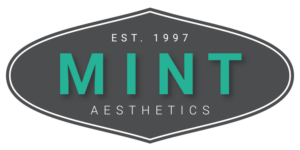
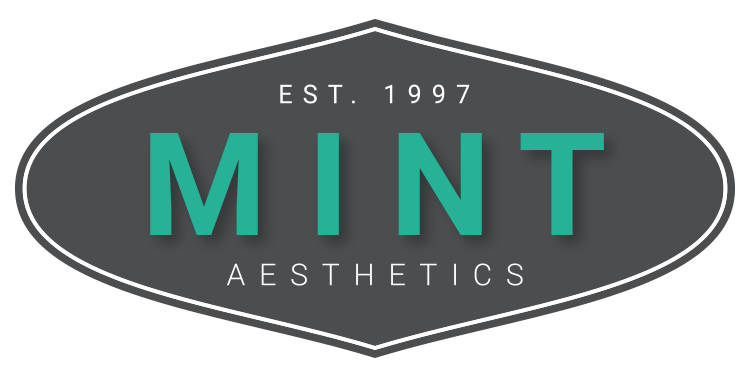
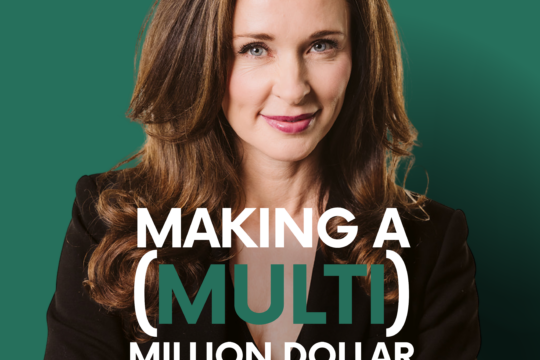

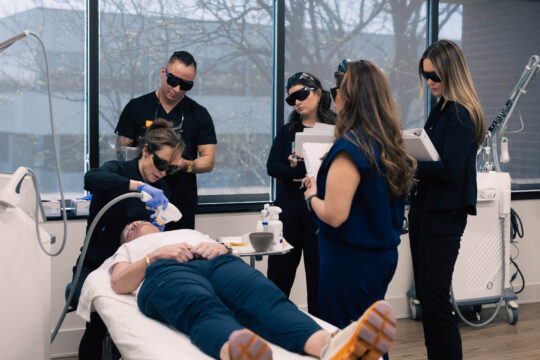
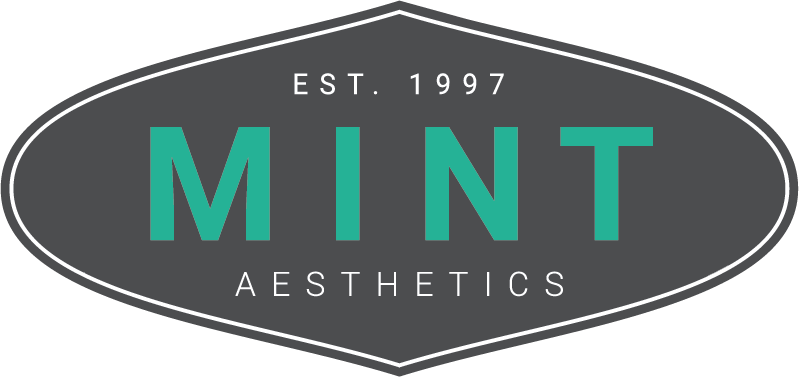
Comments are closed.